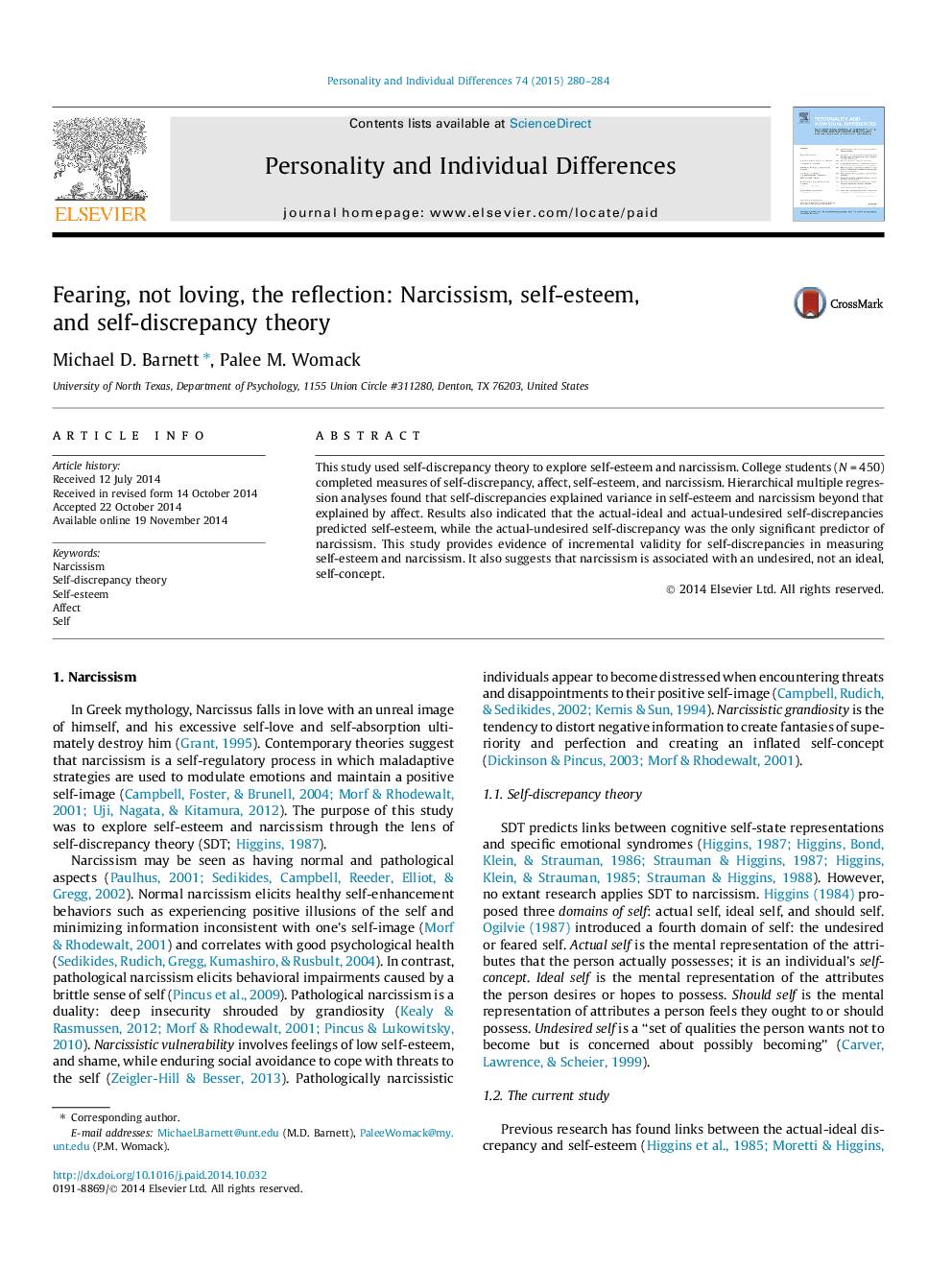| Article ID | Journal | Published Year | Pages | File Type |
|---|---|---|---|---|
| 7252073 | Personality and Individual Differences | 2015 | 5 Pages |
Abstract
This study used self-discrepancy theory to explore self-esteem and narcissism. College students (NÂ =Â 450) completed measures of self-discrepancy, affect, self-esteem, and narcissism. Hierarchical multiple regression analyses found that self-discrepancies explained variance in self-esteem and narcissism beyond that explained by affect. Results also indicated that the actual-ideal and actual-undesired self-discrepancies predicted self-esteem, while the actual-undesired self-discrepancy was the only significant predictor of narcissism. This study provides evidence of incremental validity for self-discrepancies in measuring self-esteem and narcissism. It also suggests that narcissism is associated with an undesired, not an ideal, self-concept.
Related Topics
Life Sciences
Neuroscience
Behavioral Neuroscience
Authors
Michael D. Barnett, Palee M. Womack,
